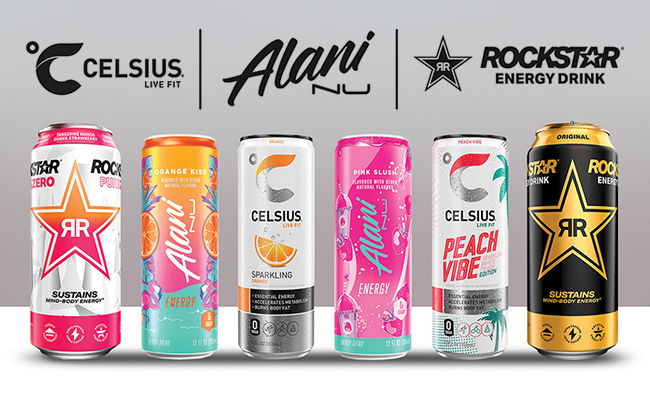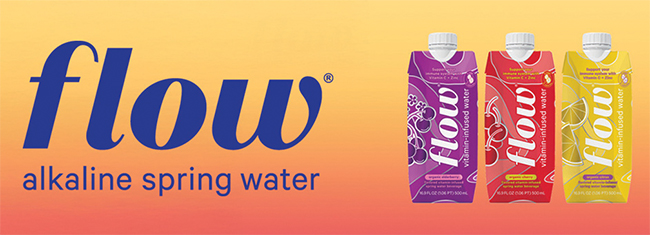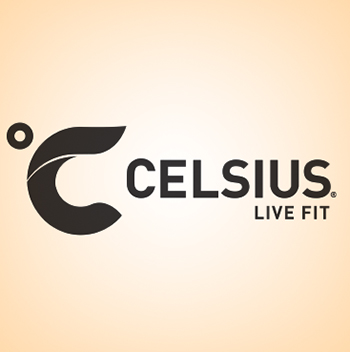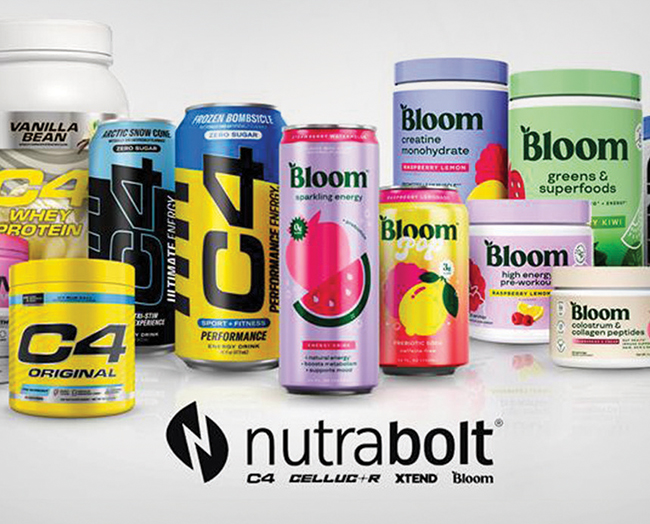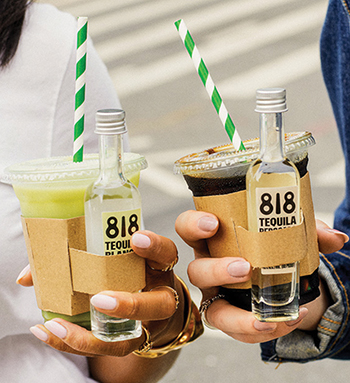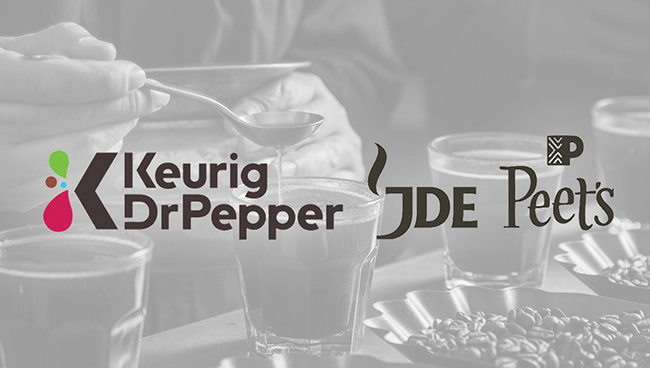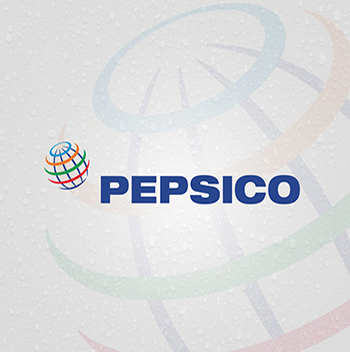Bevscape: The Latest Beverage Brand News
PepsiCo Taps Celsius As “Strategic Energy Lead,” Backed By $585M Investment
The thriving partnership between Celsius and PepsiCo is entering a new phase.
The two companies announced an expansion of their long-term strategic alliance in August that positions Celsius Holdings as PepsiCo’s “strategic energy lead in the U.S.,” placing the Celsius, Alani Nu and Rockstar Energy brands under its management, with PepsiCo distributing the full portfolio in the U.S. and Canada.
PepsiCo is also deepening its stake in Celsius Holdings to 11% through $585 million in newly issued convertible 5% preferred stock. The company will nominate an additional director to Celsius Holdings’ board of directors.
The deal builds upon Pepsi’s initial $550 million investment (8.5% ownership stake) in August 2022 as part of its distribution agreement.
“Stepping into the role of PepsiCo’s strategic energy drink captain in the U.S. is expected to be a pivotal milestone in our journey to shape the future of modern energy and grow our brands within a leading beverage distribution system,” said John Fieldly, Chairman and CEO of Celsius Holdings, in a prepared statement. “With a proven functional beverage portfolio and a stronger long-term partnership with PepsiCo, we believe that Celsius Holdings is well-positioned to deliver greater innovation, sharper execution and sustained brand growth. Together, we will reach more people, in more places, more often, with a total energy portfolio that offers options for every consumer and creates greater value for all our stakeholders.”
As PepsiCo’s energy leader in the U.S., Celsius Holdings will drive a unified strategy across the energy portfolio through “seamless planogram design, SKU prioritization and promotional execution.”
“This agreement marks the next step in PepsiCo reshaping its brand portfolio to position us for long-term growth,” said Ram Krishnan, CEO PepsiCo Beverages U.S. “Energy is an important growth category, and we believe this move with our partner Celsius creates a stronger multi-brand energy portfolio that is better positioned to serve different consumer cohorts. This transaction creates an aligned incentive structure for both parties to bring their individual expertise to better compete in the energy category.”
The announcement confirms the future of Alani Nu distribution, one of the most pressing questions since Celsius bought the brand for $1.8 billion in February. Alani’s massive success — sales hit $301 million (+129%) in Q2, with share up 3.2 points from the same period last year — has come mainly on the back of independent beer DSDs, many of which have been predicting it would eventually leave their portfolios. In a survey of beer distributors earlier this summer, 64% said they expected to lose the brand sometime in the near future.
That cycle — growing in DSD before shifting to a major strategic — has been a major theme of the recent energy drink boom, driving consolidation at the top of the market. Outside of Red Bull, Coca-Cola (Monster, which also owns Bang), Keurig Dr Pepper (Ghost, C4, Bloom, Black Rifle) and now PepsiCo are collectively aligned with the energy category’s top ten brands.
The exchange is evocative of Coke’s alignment-seeking deal with Monster in 2015, in which Monster gained control of Coke’s energy brands like Full Throttle and NOS — the latter generating over $500 million in the 52-weeks ended July 3, 2025 — in exchange for the natural beverage portfolio it had grown as the original Hansen’s Beverage Co.
But whereas previous strategic exits have opened up opportunities for smaller brands to fill the gaps on distributor’s trucks, the conditions now may be different as beer conglomerates seek to have their say. Molson Coors took full control of the much-hyped ZOA brand last November, while Anheuser Busch is currently in the midst of introducing Phorm Energy, its joint venture with UFC boss Dana White and supplement maker 1st Phorm. The brand announced it’s heading to 7-Eleven stores earlier in August.
Flow Water To Be ‘Wound Down’
Canadian drinks company Flow Beverage Corp., maker of Flow Water, entered a support agreement in early September with its foreclosing creditors to transfer ownership of the business and its assets. Under the plan, Flow’s old business will be “wound-down” while maintaining co-packing operations.
NFS Leasing Canada Inc. and RI Flow LLC have agreed to take control of the bottled water brand and beverage co-packing business following a default on debt repayments last month. The deal is pending court approval by the Ontario Superior Court of Justice.
The lenders have agreed to provide an undisclosed sum of bridge financing to Flow in order to maintain operations during the restructuring transaction.
According to the announcement in September, the support agreement comes after “an exhaustive strategic review conducted under the supervision of a special committee of independent directors, which considered all alternatives” to address Flow’s liquidity.
As part of the agreement, NFS Leasing Canada and RI Flow will jointly control Flow Beverage, likely through a new entity tentatively named “NewCo.”
The deal does not cancel out other debts incurred by Flow to other firms and businesses.
However, the end result appears to be to shut down Flow following the completion of the transaction. The release notes that Flow “and its subsidiaries and their remaining assets and liabilities will be wound-down under the supervision of the receiver and the Court pursuant to proceedings commenced under the Bankruptcy and Insolvency Act [of Canada].”
Paul Dowdall, CFO and a member of the interim CEO group running Flow, said in September that “the brand will continue (as it is an asset) but entities will be wound down after completion of the foreclosure.”
In a full statement, Dowdall noted that while the foreclosure process “limits what we can share today,” he highlighted that “the process is designed to restore stability and position the business for continuity.”
“During this brief period, our top priority is maintaining continuity for our existing co-packing and retail customers,” he added. “We are coordinating closely to minimize disruptions to the extent permitted by the process and will share updates as soon as possible once it concludes. Following completion of the foreclosure, we expect to emerge with strengthened sponsorship and liquidity and to evaluate capacity investments aimed at better serving current partners. Any consideration of additional co-packing opportunities would be incremental and capacity-dependent, and not at the expense of existing relationships.”
Flow first announced it received a $2 million senior secured business purpose loan from NFS in May 2025, with a binding term sheet for an additional loan of up to $4 million. At the same time, Flow reported it entered an agreement with RI Flow for a secured convertible loan of up to $6 million.
A final tranche of $2 million loaned from RI Flow was announced on August 8. By August 25, the company said it was facing foreclosure from both lenders and that CEO Nicholas Reichenbach was being replaced in the chief executive role by an interim group of executives and directors.
Celsius Enlists Former Mark Anthony Exec to Lead Marketing
Celsius Holdings, which was recently tapped by PepsiCo to be the company’s “strategic energy lead,” has appointed seasoned marketing executive Rishi Daing as CMO, effective September 8.
Most recently, Daing served as EVP of the Mark Anthony Group, where he spearheaded the launch of hydration beverage brand Más+ by Messi alongside global soccer star Lionel Messi. At Celsius Holdings, he will oversee marketing strategy across the company’s brand portfolio, aligning brand development, go-to-market execution and digital platforms.
“Rishi is a transformational leader with a proven track record of building and scaling iconic brands,” said Eric Hanson, president and COO of Celsius Holdings, in a statement. “As we continue to drive growth within our total energy portfolio – including Celsius, Alani Nu and Rockstar Energy – his expertise in innovation, data-driven marketing and international expansion will be instrumental in unlocking new growth opportunities.”
In conjunction with Daing’s appointment, Celsius Holdings has established a marketing leadership team that includes Kyle Watson as chief brand officer and JoBeth Fink as chief creative officer. Watson had led marketing at the Boca Raton, Florida-based company since 2019, while Fink joined the company in 2025 through the Alani Nu acquisition.
In a press release, Celsius Holdings CEO John Fieldly said the appointments of Daing, Watson and Fink “reflect our commitment to building a world-class marketing organization capable of scaling our brands from big brands into mega brands.”
The better-for-you energy drink maker has seen explosive growth in recent months, in part fueled by its $1.8 billion acquisition of Alani Nu. In Q2, overall revenue jumped 84% year-over-year ($739.3 million), while net income climbed 25% to $99.9 million.
Comparatively, the energy drink category as a whole experienced 16.3% dollar sales growth in the two-week period ending August 9, according to an analysis of NielsenIQ data by Goldman Sachs Equity Research. Category leader Monster Energy underperformed, with sales increasing just 9.3%.
Celsius Holdings has benefited from its flourishing partnership with PepsiCo, which recently deepened its stake to 11% through $585 million in newly issued convertible 5% preferred stock. The conglomerate plans to nominate an additional director to Celsius Holdings’ board of directors.
“Stepping into the role of PepsiCo’s strategic energy drink captain in the U.S. is expected to be a pivotal milestone in our journey to shape the future of modern energy and grow our brands within a leading beverage distribution system,” said Fieldly in a prepared statement.
Nutrabolt Takes Majority Stake in Bloom Nutrition
Nutrabolt has taken a majority stake in Bloom Nutrition, positioning the parent company as a major platform across wellness CPG categories, including energy drinks and powdered supplements.
The Texas-based company, best known for its C4 brand of energy drinks and pre-workout supplements, led a $90 million investment round in Bloom in January 2024 for a 20% stake. That served as the springboard for the successful launch of Bloom’s first RTD, Sparkling Energy, in 2024, with a second line, prebiotic soda Bloom Pop, added this summer. Both products are distributed through Nutrabolt’s partnership with Keurig Dr Pepper (KDP).
Nutrabolt did not confirm its ownership in Bloom, but verified its total investment as over $200 million, which would bring its stake to over 50%.
“Since our first introduction to Bloom, I’ve been continually impressed by the brand’s evolution, its visionary founders, and their explosive growth,” said Doss Cunningham, Chairman and CEO of Nutrabolt, in a prepared statement.
“With the breakout success of Bloom Pop and a record-breaking year for Bloom Sparkling Energy, the brand’s momentum presents a powerful step-change growth opportunity for Nutrabolt,” he said. “I’m confident Bloom is on track to become one of the fastest-growing and most talked-about beverage brands in the years ahead.”
Amidst a wave of digital-native wellness supplements that have emerged over the past decade, female-focused Bloom has found staying power thanks in part to its active social media following and organic support from TikTok creators. Its products are sold in Walmart, Target, GNC, Whole Foods and other retailers.
Bloom’s co-founders — president Mari Llewellyn and CEO Greg LaVecchia — will remain in their current roles.
“We’re incredibly proud of the momentum we’ve built and the community we’ve cultivated,” said LaVecchia. “Nutrabolt has been a valuable partner – fully aligned in our mission and a genuine champion of our brand. With this expanded partnership, we’re excited to enter our next phase of growth and create something truly meaningful together.”
With the combination of C4 and Bloom, Nutrabolt’s portfolio covers a broad range of product categories, audiences and use occasions.
That’s particularly relevant for coveted female consumers, an audience with which Bloom has created strong affinity, both through its branding aesthetic and products tied to skin health and beauty. The online momentum from those niche functional areas has carried over through its move into the mainstream with RTDs: in less than a year on the market, Bloom Sparkling Energy has generated over $95 million in sales – well clear of its closest competitor, Zoa – according to NielsenIQ data through July 3, 2025.
That experience helped Bloom forge relationships with top-class manufacturers and create a go-to-market playbook that it replicated for the introduction of Bloom Pop this year, LaVecchia told BevNET in July.
The move comes amidst category consolidation; the current landscape recalls Renaissance Italy, with a handful of ultra-wealthy families spreading their patronage amongst a select group of high performers.
Celsius, the third-place brand behind Red Bull and Coca-Cola-affiliated Monster, acquired Alani Nu — another fitness-focused supplement brand that broke through to mainstream consumers with its RTD energy drink — for $1.8 billion in February.
Its parent company, Celsius Holdings, now acts as the ‘strategic lead’ for distributor PepsiCo, managing Celsius, Alani Nu and Rockstar, representing a nearly 20% share of the U.S. energy drink market. Global beer conglomerates Molson Coors (Zoa) and Anheuser-Busch InBev (Phorm Energy) have also dived in.
What does this mean for Nutrabolt’s relationship with its backer? KDP took a 30% stake in the nutrition company as part of its $863 million strategic pact in 2022; Nutrabolt’s value has increased significantly since then, meaning any potential bid for full control by KDP would well surpass the $990 million it paid to acquire Ghost in October 2024.
“I’d be watching for KDP to correct the C4 Energy ownership/incentive misalignment that was caused by their GHOST acquisition,” independent consultant Joshua Schall told us back in February in reaction to Celsius’ acquisition of Alani Nu.
Indeed, KDP’s aggressive expansion across categories in recent years may create some traffic issues; in energy drinks alone, the company distributes products by C4, Ghost, Bloom and Black Rifle. With each of those individual brands eager to expand their respective platform, it’s unclear how product innovation will be paced or where it will be funnelled; Ghost, for example, is set to reveal its first protein bar in September.
Kendall Jenner’s 818 Tequila Announces New Investment, CEO
Kendall Jenner’s 818 Tequila has landed additional investment and named a new CEO.
In August, the tequila brand’s parent company, Calabasas Beverage Company (CBC), announced that it had received a strategic investment from the Pérez family, owners of Grupo Solave, the company in Jalisco, Mexico that produces 818 Tequila, according to an announcement today. Terms of the deal were not disclosed.
Grupo Solave has been growing agaves for four generations in Jalisco and is now the largest family-owned agave grower in Mexico, according to a press release. The company will now become a part-owner of 818 Tequila. Brands such as Astral Tequila, Don Gato and ready-to-drink (RTD) cocktail Onda are also made at Grupo Solave’s distillery.
Hecho Tequila Soda, a RTD brand that appears to be off the market, also received a strategic investment from Grupo Solave and signed a bulk tequila supply agreement in 2022.
Grupo Solave is a subsidiary of OLEOMEX, a Mexican company with business ventures in edible oils, margarine and agave products, among others.
CBC (also the parent company of Kylie Jenner’s Sprinter) used the occasion to reveal the appointment of a new CEO. Larry Goodrich, former chairman of CBC. The Southern Glazer’s veteran previously served as CEO of 818 Tequila during the brand’s formative years and early expansion.
Meanwhile, previous CBC CEO Michael Novy stepped into the CEO role for the top moonshine and flavored whiskey maker, Ole Smoky, which also owns Tanteo Tequila. He served as president and COO of CBC from the company’s start in 2021 until July 2024, when he moved up to CEO.
818 Tequila’s leadership change comes on the heels of a portfolio expansion this month: 818 Minis – 50 mL bottles of its Reposado and Blanco expressions. The mini line is another trend-savvy release from the reality TV star-turned-entrepreneur, including a past collaboration with influencer Emma Chamberlain on an espresso martini kit. Clearly aiming to tap into the need for portable, low-commitment spirit offerings, the minis also fit squarely into collectable, customizable trinket trends led by Gen Z.
On social media, the brand has positioned the minis as accessories, encouraging consumers to clip the bottles to purses and phone cases. Limited edition bundles debuted earlier this month on Gopuff featuring collectible custom 818 Minis Bag Charms that hold one 818 Mini. The line will later roll out nationwide at liquor stores such as Total Wine & More and BevMo in September.
Mini formats and RTDs have fared better in recent years than larger format sales in many spirit categories. Tequila, vodka, cordials, and whiskey are leading growth within the minis segment, according to NIQ.
818 Tequila sales are up 17% year-over-year in the four weeks ending May 17, 2025, according to NIQ.
KDP Agrees $18B Deal to Acquire JDE Peet’s, Creating Coffee ‘Pure Play’
Hold on to your coffee cups. Keurig Dr Pepper (KDP) is solidifying its position as one of the world’s largest coffee companies in announcing an $18 billion deal to acquire JDE Peet’s, expected to close in early 2026.
The transaction will divide KDP into two independent public companies, one exclusively for the coffee business (“Global Coffee Co.”) and another focused on beverage refreshment (“Beverage Co.”). KDP CEO Tim Cofer will lead Beverage Co. from Frisco, Tex., while KDP CFO and president Sudhanshu Priyadarshi will be Global Coffee Co.’s chief executive, from Amsterdam, Netherlands.
Following the split, the coffee division is expected to generate $16 billion in annual net sales, while Beverage Co. forecasts approximately $11 billion.
The consolidation of KDP’s coffee business will expand its current portfolio to more international markets in over 100 countries. Upon separation, the coffee division will be diversified geographically with about 40% share in both North America and Europe, respectively, and 20% throughout the rest of the world.
“You can think about it as one plus one equals three,” said Cofer during a conference call. “What we do at Keurig and our innovation capabilities with machines and brewers, and how we can bring that knowledge and technology to places like Sensio and Tassimo. On the other side, JDE Peet’s has a greater global scale and gives us access to expanding big ideas, some of which are in our pipeline. I think together, it really will be an unparalleled portfolio that’s stronger and more resilient.”
Despite the elevated price of green coffee and the impact of tariffs on Brazilian coffee exports, Cofer expressed optimism for going deeper in the set. Net sales were down 0.2% to $0.9 billion, in Q2 earnings call in August. International sales also trailed 1.8% to around $0.6 billion.
“I’m on record: We like the coffee category. Why? It’s huge, it’s ubiquitous, it’s a $400 billion TAM, and it’s a resilient grower,” Cofer said in response to a question about selling KDP’s coffee business over acquiring JDE Peet’s. “Here in this country, we’re seeing [coffee] begin to turn around. We would be selling a business that’s just beginning to turn around at a low multiple.”
In July’s Q2 report, Cofer explained that there was “sequential improvement” trends for KDP’s U.S. Coffee segment as “incremental pricing” has helped offset inflation and “volume remained resilient.” The company had announced that additional pricing actions would take effect during Q3.
In an analysis, Jefferies’ analysts reported that the acquisition is a “good deal” and “recent pressure on (the) coffee biz is irrelevant, this is about growing within a $400b category – a category that is innovating and thus fragmenting in formats and channels. A globally diversified operation makes sense.”
The acquisition will allow KDP’s beverage division to focus on its direct-store delivery network across the U.S. and Mexico. KDP’s portfolio of soda, juice, energy and other non-alcoholic beverages will benefit from “multiple paths to win,” Cofer said.
Along with its distribution deal with C4 Energy and high-growth drink and supplement brand Bloom, KDP has made a series of acquisitions in the last year to solidify and diversify its reach in beverage. In July, KDP acquired drink mix manufacturer Dyla Brands – producer of Stur– and energy drink and sports nutrition business GHOST in November.
“We have a proven buy-build partner model, and that means we don’t take a one-size-fits-alll approach,” he said. “We stay agile and flexible in looking at where are the growth spaces, where are the opportunities to add positions, what’s best for that partner and how can we do it in a highly capital-efficient way.”
PepsiCo’s $4B Investor Pushes for Change, Refranchising Indie Bottlers
PepsiCo is facing pressure from an activist investor to make a broad series of strategic changes, including restructuring its beverage division to welcome franchise bottlers back into the fold.
Elliott Investment Management, which holds a $4 billion stake in PepsiCo, sent a letter to Pepsi’s board of directors in September outlining a five-point plan to address “poor operational results, sharp stock-price underperformance and a meaningfully discounted valuation.” If enacted, the firm said, the changes could send Pepsi shares up at least 50% and restore organic growth revenue to mid-single-digits.
“PepsiCo finds itself at a critical inflection point. The Company has an opportunity – and an obligation – to improve financial performance and regain its position as an industry leader,” read the letter, signed by Elliott partner Marc Steinberg and managing partner Jesse Cohn.
The letter criticizes Pepsi Beverages North America (PBNA) for lagging behind chief rivals Coca-Cola and Keurig Dr Pepper (KDP) by continuing to “underinvest” in its core CSDs; there’s also several billions in impairment on the books from its purchase of Rockstar and Sodastream. Dr Pepper notably surpassed Pepsi as the second most-popular soda by market share in 2023, and despite big-ticket category acquisitions like Poppi, analysts cited in Elliott’s presentation are skeptical PBNA has a path to hit its long-term target for mid-teen operating margins (currently 11%).
Specifically, innovation under new acquired or launched brands has “fallen short” despite high SKU proliferation: according to Elliott’s presentation, PBNA has approximately 70% more SKUs than Coca-Cola but is generating roughly 15% less retail sales.
Pepsi’s latest release, Pepsi Prebiotic, is set to launch online this fall.
In response, Elliott is pushing for Pepsi to explore potentially shifting back into a franchise bottling system as a means to “allow each business to focus on its core competencies.” The soda giant transitioned to a network of corporate-owned bottlers, buying Pepsi Bottling Group and Pepsi Americas in 2009, as a means to tighten control over operations, but the result has been “weaker price-pack management, slower regional innovation and poorer in-store execution,” according to the presentation. The lack of checks and balances from a third-party partner has contributed to PBNA losing “focus and discipline.”
That should be complemented by a review of brand and SKU portfolios with an eye towards “reducing operational complexity,” while also divesting non-core and underperforming assets to help boost profit margins and freeing up capital for redeployment elsewhere.
Pepsi upped its stake in energy drink brand Celsius last week to 11% (+$585 million); as part of the deal, Celsius Holdings will manage the business for Alani Nu and Rockstar Energy and its namesake brand, with Pepsi distributing the full portfolio in the U.S. and Canada.
PepsiCo Foods North America (PFNA) should also be recalibrated, Elliott argued. The company’s aggressive investment strategy (criticized as “well beyond the needs of the current environment”) has failed to generate the anticipated growth and subsequently compressed margins. Yet the answer isn’t necessarily to spend less, but more strategically. Cutting operational costs and spending will free up capital for reinvestment in core brands and bolt-on acquisitions, said Elliott, noting it’s a model that already once helped PFNA jump-start growth in the early 2010s.
As for which brands should be on the chopping block, Elliott’s presentation notes that although its acquisition brought Gatorade into the fold, Quaker’s portfolio has “few, if any, synergies” with Frito Lay’s salty snacks, an area where PFNA has “true competitive advantage.”


Receive your free magazine!
Join thousands of other food and beverage professionals who utilize BevNET Magazine to stay up-to-date on current trends and news within the food and beverage world.
Receive your free copy of the magazine 6x per year in digital or print and utilize insights on consumer behavior, brand growth, category volume, and trend forecasting.
Subscribe